By Joanna Demarco and Sabrina Zammit
- Over 5000 people have been pushed back to Libya since 2020
- Distress calls have quadrupled from 136 in 2020 to 589 in 2023
- Almost 80 boats pushed back to Libya since 2020
- Malta’s policy, led by Alex Dalli in Libya, includes ‘specialised training’ in ‘sniping’, ‘storming’, among others, an analysis by Amphora reveals
Pushbacks from Malta’s Search and Rescue (SAR) Zone have tripled since 2020, with over 5,000 people documented to have been pulled back by Libyan actors, new data shining a light on activities shrouded in secrecy for the first time, and seen by Amphora Media, reveals.
The data collected from numerous civil fleets and NGOs such as Alarm Phone and the Civil Maritime Rescue Coordination Centre (CMRCC) Search and Rescue Archive, between 2020 and 2024, collated into a database focused on Malta’s SAR zone by the Malta Migration Archive, sheds light on activities for which the government’s lack of transparency has frequently been criticised.
The data also reveals that over the five years, documented distress calls from boats in Malta’s Search and Rescue Zone carrying migrants at sea have increased significantly: from 136 in 2020 to 589 in 2023 and 554 in 2024.
However, despite this boom, the data shows that rescues by the Armed Forces of Malta (AFM) to the documented distress calls declined dramatically over the same period.
Additionally, the stark incline in pushbacks coincides with a change in Malta’s political arrangements in the region and the tenure of Malta’s Special Envoy to Libya, Alexander Dalli. Dalli, Malta’s former prison director, who was found to run a prison that allegedly degraded inmates and faced allegations of fear-mongering and racism, was given the role of special envoy in December 2021, soon after stepping down from his role as prison chief amid following the third reported inmate suicide that year.
Pushbacks Increase Significantly
An analysis of the data by Amphora Media shows that over 5,100 people in a total of 79 boats were recorded as having been intercepted by the Libyan Coast Guard while in Malta’s Search and Rescue Zone between 2020 and 2024.
Returning migrants to Libya has been declared illegal by the European Court of Human Rights, due to the lack of safety, violence, danger and severe human rights violations in the country.
The archived data shows that pushbacks, which are described by the Council of Europe’s Commissioner for Human Rights as actions that ‘involve the summary return of refugees, asylum seekers and migrants by states without the observance of the necessary human rights safeguards’ have been on a steady increase since 2020. With:
- 7 pushbacks recorded in 2020
- 12 in 2021
- 19 in 2022
- 20 in 2023
- 23 in 2024
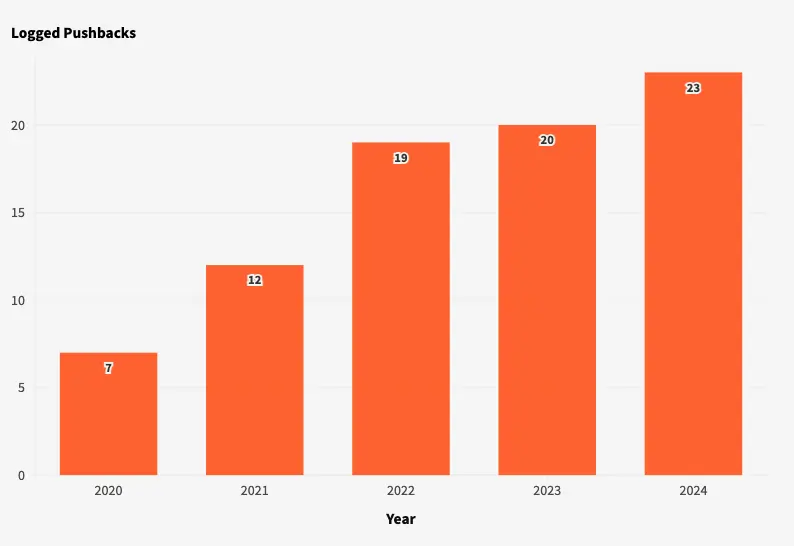
A count of the number of people on each boat that was intercepted by the Libyan Coast Guard shows that 5,114 people have been returned to Libya in that timeframe.
While a total of 383 were recorded on the boats in 2020, 1065 were recorded in 2024. 2023 registered the highest number of people, with 1940.
In 2023, four boats were pushed back with an exceptionally high number of people on each: 500 in one, 300 each in two others, and 250 in a fourth.

The archive uses the term ‘so-called Libyan Coast Guard’ to question the functionality, legality and legitimacy of “the various bodies and militias in Libya involved in pushbacks, including the EU’s partner, the Libyan Coast Guard associated with the Tripoli Government of National Unity, and the Tariq Ben Zayed Brigade, a militia within Haftar’s Libyan National Army in Eastern Libya.”
In 2023, the UN Fact Finding Mission on Libya noted that ‘high-ranking staff of the Libyan Coast Guard… colluded with traffickers and smugglers, which are reportedly connected to militia groups, in the context of the interception and deprivation of liberty of migrants.’
AFM Rescues Decline
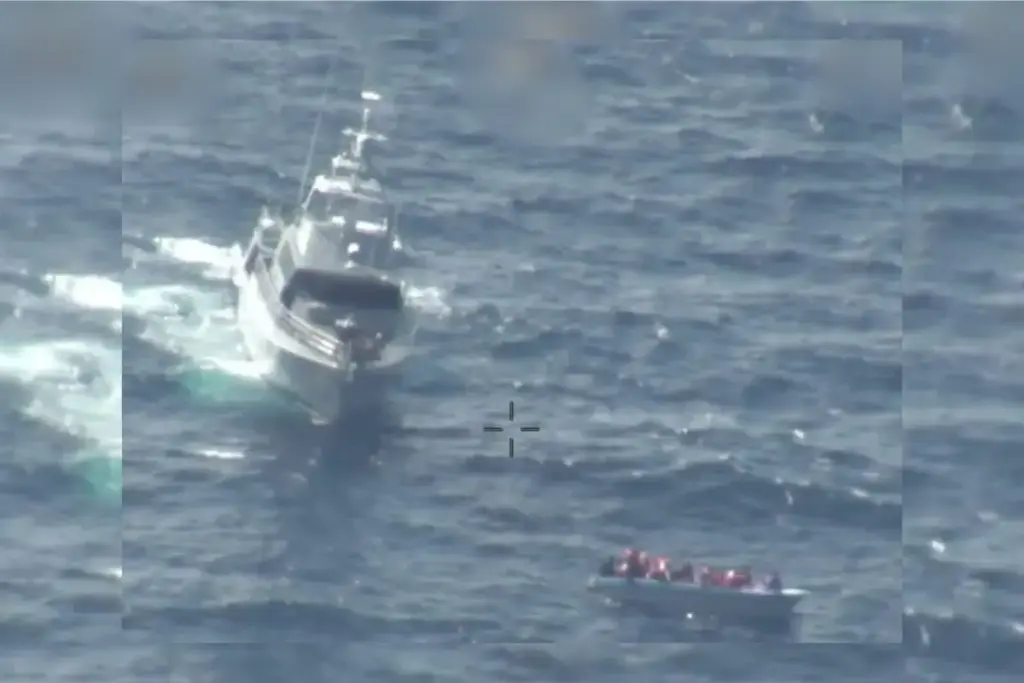
As the documented pushbacks increased, data collected by the archive also shows that rescues of the boats in distress by the Armed Forces of Malta moved in the opposite direction.
The archive documents:
- 21 boat rescues in response to distress calls in 2020
- 8 in 2021
- 4 in 2022
- 5 in 2023
- 2 in 2024
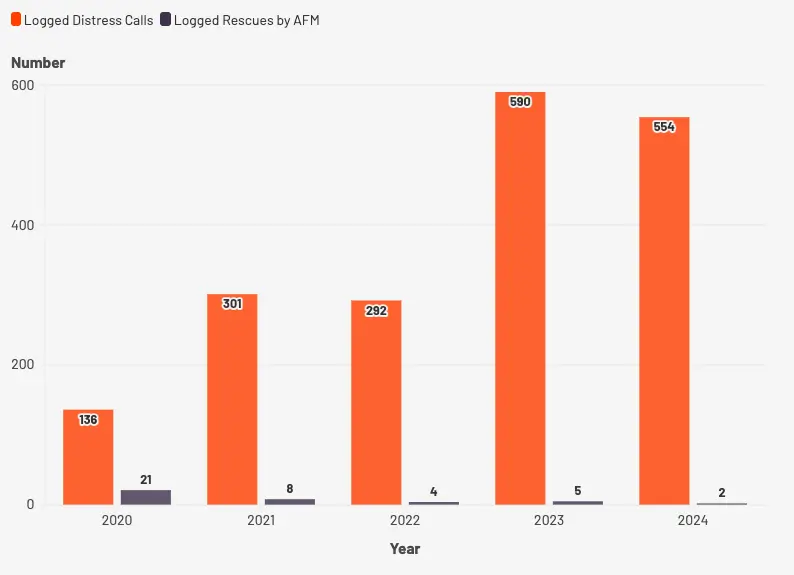
Official figures published by United Nations’ Refugee Agency (UNHCR) corroborate this downward trend. The number of persons arriving to Malta by boat shrinks significantly with every passing year:
- 2,281 in 2020
- 832 in 2021
- 444 in 2022
- 380 in 2023
- 238 in 2024
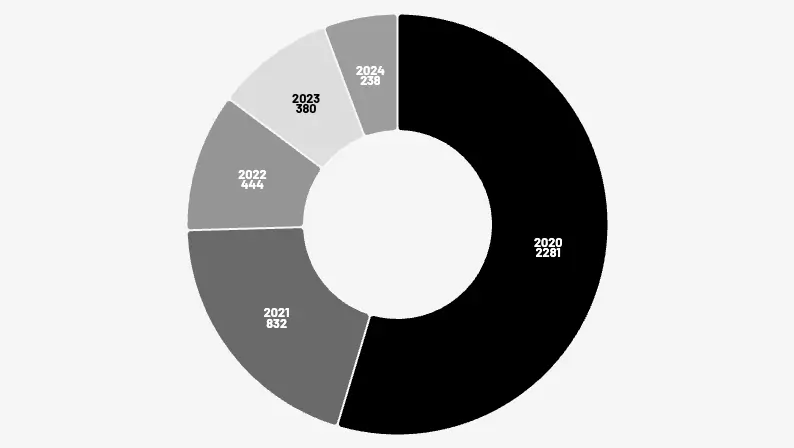
Abandoned at Sea
Documentation of distress calls tracked by civil fleets and collated by the Malta Migration Archive depicts how, over the years, people have been left adrift in Malta’s SAR zone, ignored by authorities, abandoned by passing ships, or pushed back to Libya.
Under international law—and reinforced by EU legal principles—Malta is obliged to promptly respond to distress calls in its SAR zone.
These duties are codified in conventions such as the UN Convention on the Law of the Sea and the International Convention on Maritime Search and Rescue, which require states to ensure that assistance is rendered without delay or discrimination to persons in distress at sea.”
For example, on 22nd February 2023, 34 people on a fibreglass boat without life jackets, food, or water called Alarm Phone for help. According to Alarm Phone, Malta took no action. The next day, some people reportedly died on board. Although several merchant ships and a Frontex plane were nearby, it was a boat assumed to belong to the Italian Coast Guard, not Malta’s army, that finally rescued the survivors.
This was not an isolated case. On 9th April 2023, Alarm Phone reported how Malta instructed merchant vessels to not carry out a rescue on a vessel with some 400 people in distress.
After two days drifting, they were reportedly finally rescued by the Italian Coast Guard, Frontex and merchant ships.
On 23rd May of the same year, 500 people, including five children and pregnant women, were reportedly left adrift for over a day. The NGO reported relatives of the people on board claiming that the vessel in distress had been intercepted by a Libyan militia and forcibly dragged back to the port of Benghazi in Libya. Indeed, after their vessel disappeared in Malta’s search and rescue zone the 500 people reappeared in a prison in Benghazi.
Similar patterns occurred in 2020 to 2022, when Sea-Watch and Alarm Phone documented repeated failures to respond to distress calls.
In July 2021, Malta reportedly ordered an oil tanker not to rescue people, even after spotting individuals in the water. Reportedly, three people died. In another, the Libyan Coast Guard carried out an interception in Malta’s zone while Frontex drones circled above, suggesting Frontex’s involvement.
The documentation also shows how when the AFM do intervene, it can take over 18 or even 48 hours after distress alerts.
Special Envoy to Libya
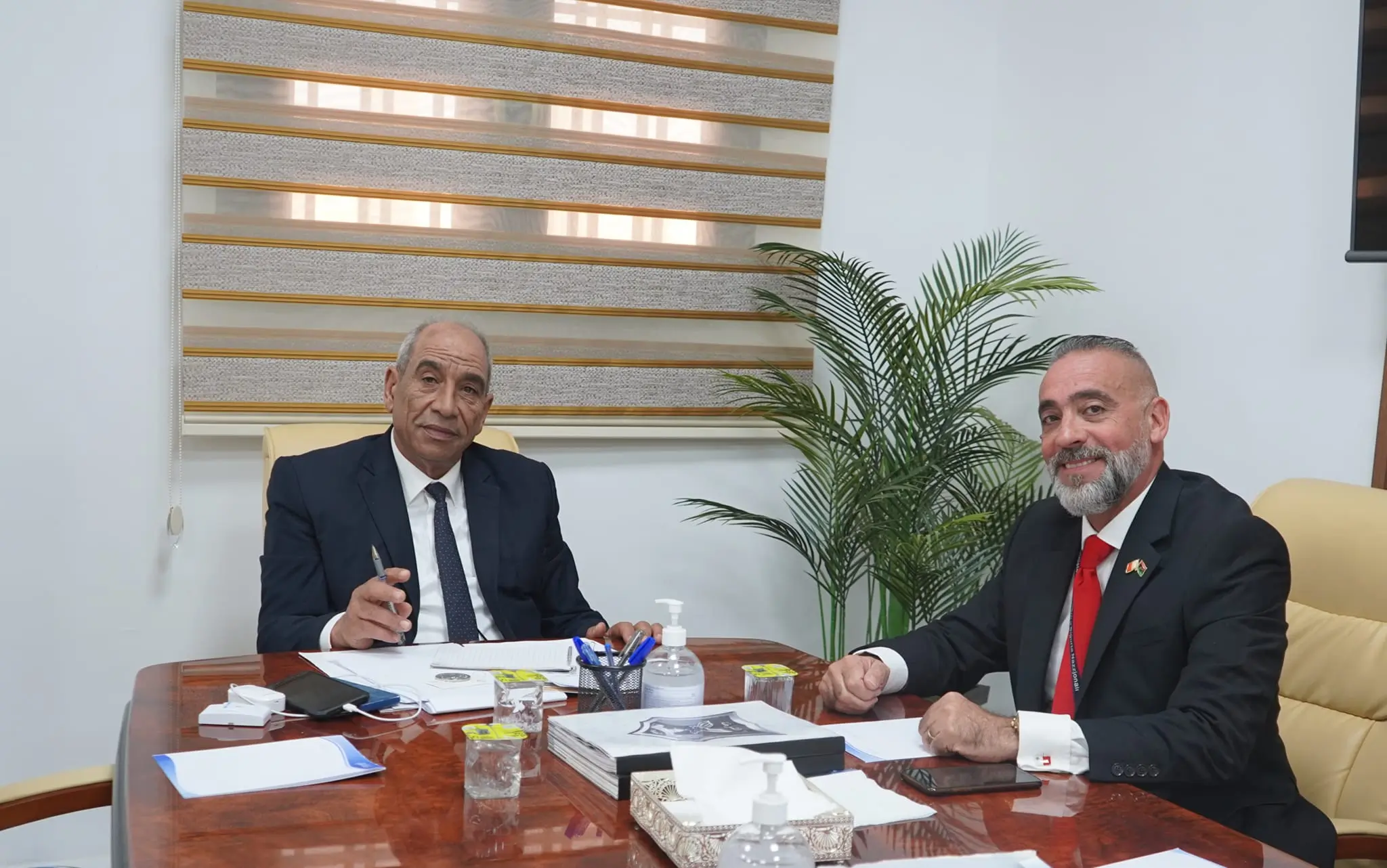
In 2020, Malta and Libya signed a memorandum of understanding announcing the creation of coordination centres in Valletta and Tripoli to “liaise between the two capitals and offer the necessary support relating to combating illegal immigration in Libya and the Mediterranean region.”
The document also states the intention for Malta to request financial support from the European Commission for providing border control technologies, dismantling human trafficking networks, curtailing organised crime operations, maritime assets, and more, within the search and rescue region in the Mediterranean Basin.
Then, at the end of 2021, despite numerous media and NGO reports on suicides and human rights abuses inside the Corradino prison facility, Dalli, a former Frontex-seconded national expert, resigned from his position as prison director in disgrace and, was soon given the role of Malta’s Special Envoy to Libya focusing on “combatting illegal migration”, where he is obliged to coordinate on matters listed in the 2020 agreement.
In January this year, Malta’s Ombudsman published a damning report corroborating the reports following his “own initiative” probe into the Corradino facility under Dalli’s tenure. In the investigation, interviewees spoke about how Dalli was running a so-called “factory of evil”– described as such by one witness – where numerous instances of violence, human rights abuses and inhumane treatment were found.
Besides the description mentioned in the MOU, Dalli’s role and day-to-day tasks in Libya have not been disclosed.
However, Prime Minister Robert Abela has publicly boasted to reporters about Malta’s decreasing number of boat arrivals. In February, defending Dalli following the Ombudsman’s report, Abela told reporters that Dalli is “performing miracles towards controlling irregular immigration.”
“Malta “is winning the fight against irregular migration,” he said.
Dalli’s ‘Specialised Training’ Sessions in Libya
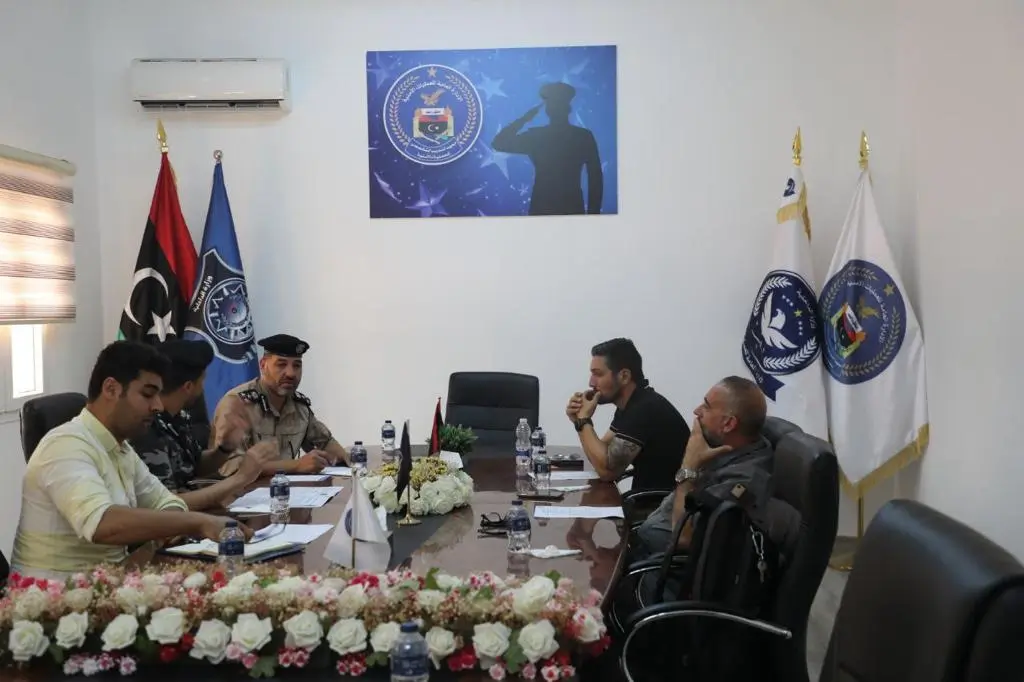
Despite an information blackout surrounding Dalli’s role, and questions to the Home Affairs Ministry about the role that have gone unanswered, an open source investigation by Amphora Media has found more information about what Malta’s Special Envoy is up to.
An analysis of social media posts by Libya’s Interiors Ministry and the ‘General Administration of Training at the Ministry of Interior of the State of Libya’ show that, in 2022 and 2023, Dalli has been involved in numerous ‘specialised training’ programmes in Libya, including a training on ‘sniping’.
In a Facebook post from August 2023, Dalli is quoted as being present at a meeting with Libyan officials “to discuss the training course programme scheduled to be held in the field of security field work (storming, landing, sniping).
In fact, specialised training programmes are mentioned in at least three separate instances in meetings between Dalli and Libyan officials. In June 2023, Dalli met officials together with Colonel Etienne Scicluna, where the two discussed “specialised courses… in the field of training for the rehabilitation and sharpening of the security and police personnel of the Ministry of Interior and benefiting from the experiences of the Maltese side in this regard.”
In another meeting with the spokesperson of the Libyan Ministry of Interior for Public Affairs, Major General Mahmoud Saeed in October 2022, Dalli discussed how to “put necessary measures to limit the flow” of illegal migration.
Meanwhile, Prime Minister Robert Abela has continued to highlight the decrease in the number of migrant vessel arrivals to Malta – describing Malta’s situation as a ‘success’ thanks to ‘government policy’.
The Home Affairs Ministry did not respond to Amphora Media’s questions that arose from the findings mentioned in this article.

Leave a Reply